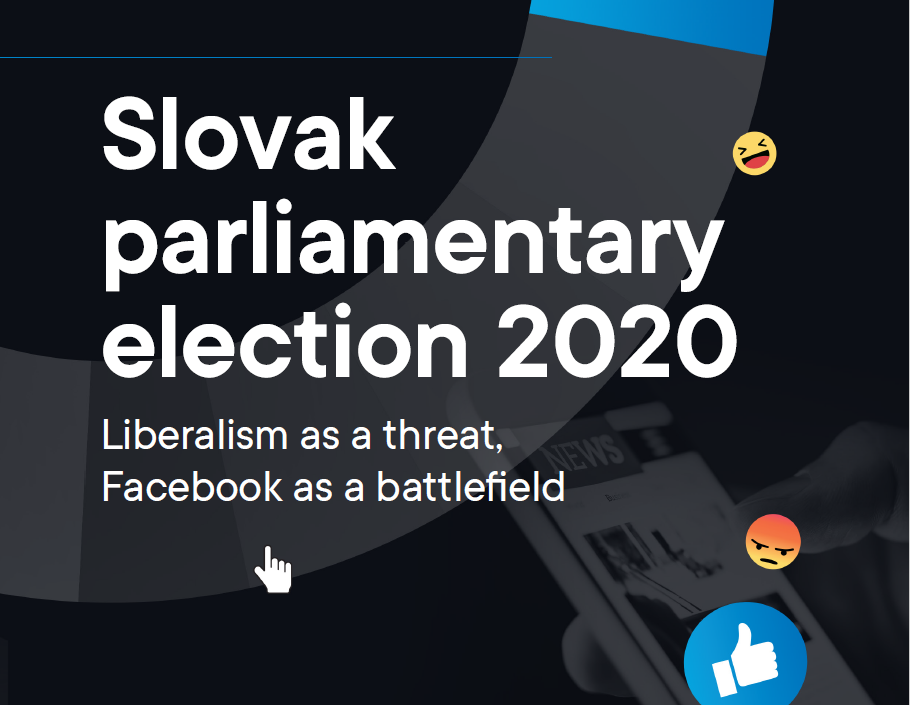Slovak Parliamentary Election 2020: Liberalism as a Threat, Facebook as a Battlefield

Slovak Parliamentary Election held on February 29, 2020 will be mostly remembered as the first election when SMER-SD party, ruling the country almost constantly since 2006, did not win.
However, these elections were marked by other twists and shakes that shaped the society and its voting behaviour. Our 5-months monitoring of online information space proved that the pre-election rhetoric on websites and the most popular social media platform in Slovakia, Facebook, was characterised by divisive, harmful and manipulative narratives. Building upon a larger phenomenon of rising illiberalism in the region and beyond, the key polarising narrative took a form of attacks and alienations of liberalism and its supporters.
Facebook (FB) was at the core of this phenomenon and thus played an important role in this debate, allowing the antisystem actors to flood the information space with such narratives, while incapable of securing the compliance with Facebook’s own community standards. We argue that Facebook enabled fringe actors to strongly influence the discourse and served as a „highway“ for these harmful narratives questioning the very basis of the democracy - to secure fundamental rights and freedoms – to enter into the mainstream and high-level politics. As a result, what had been previously considered as an absurd debate at the fringes of the political spectrum has now become widely debated on TV.
To help prevent democracies from growing polarisation and potential state capture by malign actors, more transparency and cooperation with the national authorities within the EU is necessary. In our latest report Slovak Parliamentary Election 2020: Liberalism as a threat, Facebook as a battlefield, we provide following recommendations:
- Create a designated contact/office for each EU member state, which will be responsible for: a) communication with state institutions, delivery of comprehensive databases about political advertisements, as well as reported and deleted content; b) posting advance notice of planned modifications to community standards on a specific social medium in order to consult with relevant authorities about the proposed modifications prior to their implementation.
- Ensure the enforcement of rules that secure the transparency of targeted ads and thus increase the users’ awareness. At the same time, task Facebook with the automatic and regular delivery of information about all paid ads to national institutions supervising the financing of political campaigns.
- Accelerate and increase the effectiveness of the removal of problematic content reported to Facebook by a verified trusted flagger.
- Develop a complaint system for cases when social media fail in removal of content sharing hate speech, extremism or targeted bullying of individuals. The complaints should be promptly taken over by relevant state and EU institutions with competences to issue a financial penalisation of the social media platform for such failures.
- Hire more local experts to oversee the quality of content-moderation and provide data about the competency to resolve individual cases to independent institutions and analysts for auditing purposes.
- Provide reasoning behind any account deletion or post removal to prevent the spread of conspiracies about Facebook censorship.
Read more in the report below.



